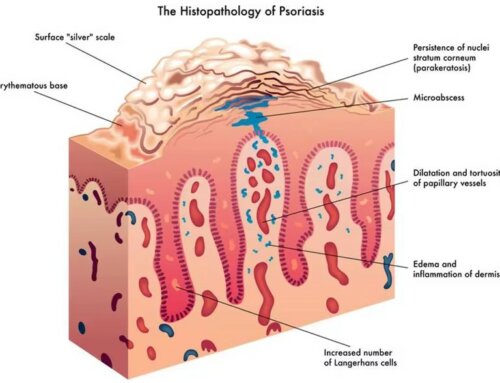This week I met with a 63 year old African American gentleman during our diabetes education session. It was his second visit to the practice and he was completely aggravated. His initial visit had been 5 weeks earlier when he was started on insulin shots. He admitted that although he had been diagnosed 12 years ago with type 2 diabetes, he never really took it seriously. He never had symptoms and just continued to do what he had always done which meant no significant life style changes.
His last visit to the physician became the turning point because his A1C would not budge below 9%. The reason he was so irritated was for the first time since his diagnosis he felt like he was doing everything right; now he had gained 6lbs in 5 weeks. As discussed in previous newsletters, insulin can be a variable in weight gain. The more we talked the more information I gathered. The things I discovered were that he was not exercising at all and he was hardly sleeping; both of these factors can influence weight gain. Each night for the last 5 weeks did not exceed 4 hours of sleep. We discussed how poor quantity and quality of sleep can affect your body chemistry and have an impact on your blood sugar control. Not only did he start insulin 5 weeks ago but he started a new full time job which was creating a lot of stress. Although there are probably other factors involved in his recent weight gain, we did discuss the need for exercise and proper sleep.
The next day I read an article regarding a new study that measured negative effects of a lack of sleep. I want to share some of that information with you.
It is documented that minority racial groups including African Americans and Hispanic Americans are more at risk for cardiovascular disease, obesity, as well as sleep issues. The most recent study was done at The University of Pennsylvania and led by Michael Grandner. The study was done on 5000 people, a large study. The participants were divided into 3 groups. There were the very short sleepers (less than 5 hours per night), the short sleepers (between 5-6 hours per night) and the long sleepers (more than 9 hours per night). The results showed that in both the very short and short groups the health of these participants was considered poor. They had a 50% increase in obesity, hypertension and cholesterol compared to those who sleep a total of 7-8 hours per night. The very short and short sleepers had a 75% increase in diabetes! Those sleeping more than 9 hours did not have these detrimental effects but previous studies have shown that more than 10 hours of sleep have negative effects as well. African Americans had the highest incidence of sleeping less than 5 hours per night. The most common reasons for lack of sleep were sleep apnea, insomnia, enlarged prostate and overactive bladder. These conditions create a two way relationship and there is still no way of knowing if lack of sleep causes some of the conditions or if the conditions cause the lack of sleep. According to several other large studies done at the University of Chicago, there is no set number of hours of sleep for everyone; there is variability in what each person needs. The majority of studies keep pointing to the healthiest amount being between 7-8 hours.
I did contact my patient to share the latest information and suggested he really examine why he had cut down on the number of hours of sleep. He admitted being overwhelmed with all the new stresses in his life and that he had no time during the day to do anything. He was willing to bet that after an adjustment period he would be back to a regular night of sleep. I can’t guarantee that his weight gain was from lack of sleep but it very well might be!
Here are some suggestions for a better night of sleep:
- If you have consistently sleepless nights, please address this with your health care provider. Let them know if you have difficulty falling asleep or staying asleep. It may be related to a medical condition, such as sleep apnea, which can be helped by wearing a C-Pap mask.
- Try to wind down from electronic devices at least one hour before bedtime. Just turn them off.
- Do not exercise for at least two hours prior to sleep. Do not eat a heavy meal for at least two hours prior to sleep. Stop drinking caffeinated beverages after 3 PM. Try to limit all beverages after 8 PM.
- Keep the room cool and have adequate blankets.
- Keep the room dark and turn the TV off.
- Take a bedtime snack – a protein and carbohydrate which may keep you sleep while regulating your blood sugars.
- Talk to your health care provider if you snore (not sleep apnea). You may benefit from a dental or oral device if you grind your teeth, which can cause headaches or pain.
- Nasal strips may also help keep your sinuses clear and aid in nasal congestion. This may give you better sleep. The strips may even temporarily help with a structural defect like a deviated septum.
- Consider a warm bath, smelling lavender or drinking warm milk. Purchase a noise machine. Some just offer a monotone sound while others offer sounds of the sea and wind. You may think this is a myth but try them first. They do work for some people.
- Find a pillow that makes you happy. Some people spend the night adjusting the pillow since it is too hard or too soft. There are specialized pillows for side, stomach and back sleepers.
- Consider stress reducing exercises like meditation, yoga, or deep breathing prior to sleep. Racing thoughts will definitely keep you awake.
- Alcohol starts out as a depressant but in the middle of the night it can become a stimulant and wake you up from a deep sleep. Remember to hydrate well if you are drinking alcohol before sleep.
- Keep your feet warm and covered with socks especially during the cooler months.
- Compose your ‘To Do’ list for the next day. It will settle your mind to be ready for the next day.
- If all else fails, talk to your health care provider about a sleep aid. They may suggest an O.T.C. or prescription medication to get you back into a healthy sleep pattern.
Sleep is important for all of us but especially when you have a chronic condition like diabetes. Do your best to get a decent nights’ sleep to help your body recover, repair, control your blood sugar and have a positive influence on your weight. Good luck!
NOTE: Consult your doctor first to make sure my recommendations fit your special health needs.






Leave A Comment